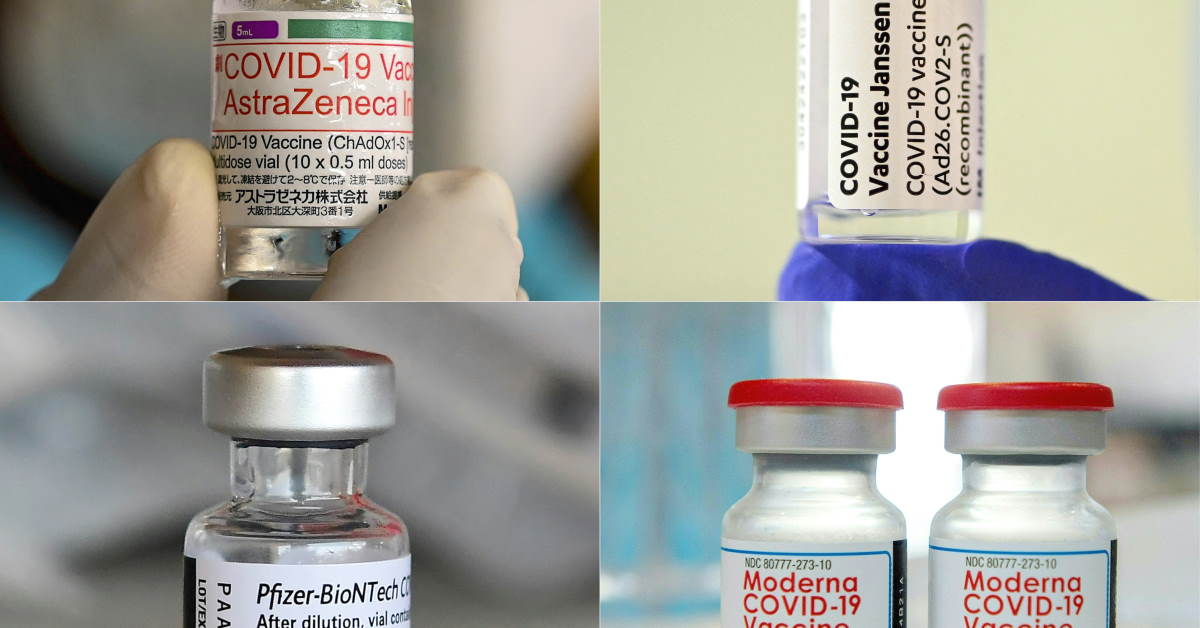The first-generation vaccine developed by BioNTech-Pfizer works against coronavirus variants such as the Delta strain and does not need to be modified for the moment, the chief executive of German company BioNTech said Monday.
"It is quite possible that in the next six to 12 months, further variants will emerge and that would require adaptation of the vaccine but it is at the moment not yet the case," Ugur Sahin told journalists.
A decision to make a switch should be made only if it is clear that the vaccine failed to work or is only offering sub-par protection against the virus.
The fast-changing situation meant that getting the timing for the change right was also crucial.
"Making a decision at the moment might turn out to be wrong in three or six months if another variant is dominating. Therefore, the timing of the decision must be appropriate," he said.
"At the moment we have a good understanding that the booster vaccine with the parental strain is completely sufficient," stressed Sahin.
BioNTech's partner Pfizer has also repeatedly amplified the case for booster shots amid the latest wave of infections.
Countries including France and Germany have said they will begin offering the additional shot to the elderly and the most vulnerable from September.
BioNTech-Pfizer have shipped around one billion doses of their vaccines to more than 100 countries or territories around the world.
They are expecting their annual manufacturing capacity to reach three billion doses by year's end, before climbing to four billion doses in 2022.
Pharmaceutical Firms Rake In Billions
COVID vaccines have brought billions of dollars to the coffers of pharmaceutical companies.
Germany's BioNTech, maker with partner Pfizer of the pioneering mRNA jab, raised its vaccine revenue forecast for 2021 in its latest earnings report on Monday.
Biggest Winners: Pfizer And BioNTech
United States (US) firm Pfizer and BioNTech got a head start over rivals as they were the first in the western world to announce positive results from clinical trials of their vaccine last year.
They were also first to get authorisation from US and European Union (EU) regulators to sell their shot.
Pfizer has earned more than its competitors, raking in US$10.8 billion (9.2 billion euros) in the first half of this year.
The US company has raised its outlook for 2021, expecting to make US$33.5 billion in sales for the full year.
BioNTech reported on Tuesday revenues of US$7.3 billion euros in the first half. Unlike its larger partner, the company's only product on sale is the coronavirus vaccine.
BioNTech expects vaccine revenues to reach 15.9 billion euros for the full year, up from a previous estimate of 9.8 billion euros.
Moderna The Other mRNA Champion
US start-up Moderna is the only other firm to have produced an authorised mRNA vaccine so far.
Messenger RNA technology works by providing human cells with the genetic instructions to make a surface protein of the coronavirus, which trains the immune system to recognise the real virus.
Like BioNTech, the company's only product in the market is the COVID vaccine. The vaccine requires two shots taken weeks apart.
Moderna reported turnover of US$5.9 billion in the first six months of the year.
It expects to make US$20 billion in revenues thanks to the vaccine this year.
AstraZeneca, Johnson & Johnson Trail
British pharmaceutical giant AstraZeneca and US firm Johnson & Johnson had their vaccines approved by the EU later than their rivals.
AstraZeneca's vaccine is one of the world's leading vaccines and has been vital in the UK's speedy vaccination drive – which enabled England's economy to fully reopen this month.
But it has not been approved by US drug regulators.
Johnson & Johnson's vaccine – made by Janssen, its Belgian subsidiary – has the advantage of being administered with one shot instead of two like those of its rivals.
AstraZeneca and J&J do not use mRNA technology.
They both made more traditional viral vector vaccines, which use genetically-engineered version of a common-cold causing adenovirus as a "vector" to shuttle genetic instructions into human cells.
The two companies also vowed to sell their vaccines at cost during the pandemic, meaning they would not earn profits from them.
They are cheaper than the Pfizer/BioNTech and Moderna jabs, which reflects in their revenues.
AstraZeneca's COVID jab generated US$1.2 billion in sales in the first six months of the year.
J&J reported US$264 million in sales and expects to make US$2.5 billion for the full year. AstraZeneca has not provided a detailed full-year estimate. – AFP
